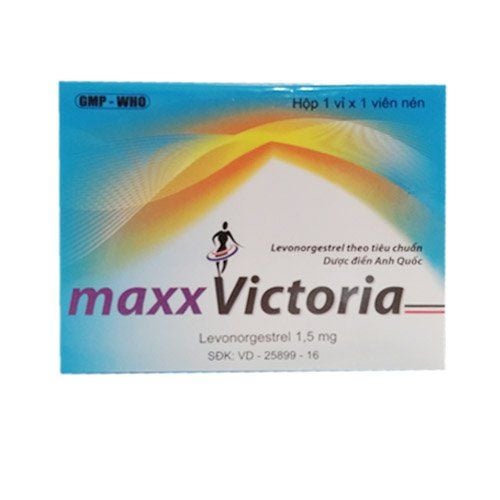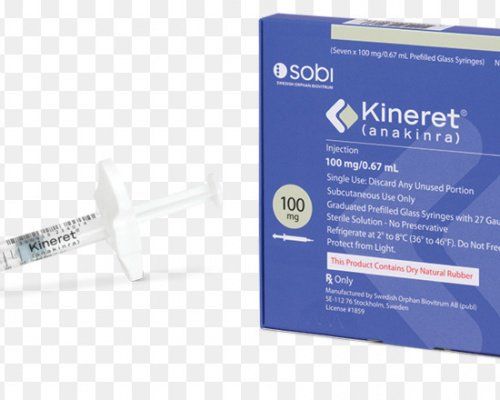This is an automatically translated article.
Azathioprine is used for patients after a transplant or rheumatoid arthritis,... So what is the use of Azathioprine and how is it used? We invite you to read through the following article.
1. Uses of Azathioprine 50mg
Azathioprine belongs to the group of immunosuppressive drugs, which work to weaken the immune system to help the body accept the newly transplanted organ.
Azathioprine is indicated in the following cases:
To prevent graft rejection in patients; Rheumatoid arthritis ; Inflammatory bowel disease. Azathioprine is contraindicated in the following cases:
People with hypersensitivity to Azathioprine or any component of the drug; Persons with a history of hypersensitivity to 6-mercaptopurine should be cautious.
2. Dosage and how to use Azathioprine 50mg
In case of anti-rejection, the drug can be used orally or intravenously (at least lasting for more than 1 minute and then must be given intravenously 50 ml of sodium chloride solution) or intravenous infusion. Dosage for adults up to 5 mg/kg on the day of transplant surgery; then, reduce dose to 1 - 4 mg/kg daily depending on response for maintenance.
Usual Azathioprine Dosage for Adults with Rheumatoid Arthritis:
Initial dose: 1 mg/kg (50-100mg) orally or intravenously per day, divided into 1-2 times; The maximum dose is 2.5 mg/kg orally or intravenously per day; The maintenance dose is the lowest effective dose; Duration: at least 12 weeks. The usual dose of azathioprine for adults with Crohn's disease is 1.5 to 4 mg/kg daily for 10 days to 52 weeks.
How to mix infusion and use Azathioprine according to the manufacturer's instructions.
Normally, for intravenous injection, Azathioprine will be mixed with distilled water for injection to get a solution of 10 mg/ml. Gently shake the ampoule until a clear solution is obtained.
For intravenous infusion, dilute the solution for injection as above with 0.9% sodium chloride injection or 5% glucose injection. The total volume of solution depends on the time of infusion, usually 30 - 60 minutes, possibly up to 8 hours. Azathioprine after reconstitution must be checked visually, if there is cloudiness or discoloration, it must be discarded.
When you overdose on Azathioprine, you may experience the following symptoms:
Unexplained bacterial infection; Throat ulcers; Skin bruising; Bleed; Bone marrow failure reaches a maximum after 9-14 days. These symptoms were more evident after chronic than acute overdose of azathioprine.
There have been reports of patients taking a single dose of 7.5 g Azathioprine with symptoms such as nausea, vomiting and diarrhea, followed by leukopenia and mild liver function abnormalities. The patient recovered uncomplicated.
There is no specific antidote to Azathioprine. In case of an overdose of Azathioprine, gastric lavage can be performed.
3. Azathioprine side effects
The most common serious side effects of azathioprine are on the blood and digestive system:
Azathioprine can cause a severe decrease in white blood cells, leading to an increased risk of infection. This condition can be reversed after a dose reduction or temporary discontinuation of the drug; Azathioprine can cause nausea, vomiting, and loss of appetite, which can be corrected by reducing the dose or dividing the dose throughout the day. Azathioprine can cause bone marrow suppression, megaloblastic, megaloblastic and sometimes allergic reactions; Azathioprine can also cause liver toxicity ; Other less common side effects of azathioprine are fatigue, hair loss, joint pain, and diarrhea. All patients taking Azathioprine need regular blood tests to count blood cells and monitor liver function tests.
If you experience any side effects while using Azathioprine, tell your doctor right away.
4. Azathioprine drug interactions
Azathioprine may increase the risk of cancer with long-term use. This risk is especially increased in people with a history of treatment with other potent immunosuppressants such as Cyclophosphamide, Chlorambucil and Melphalan; Azathioprine also increases the risk of severe infections; Azathioprine may affect fertility by reducing sperm count in men; The toxicity of azathioprine will increase when used with Allopurinol for gout, so it is necessary to reduce the dose when used simultaneously; Severe leukopenia may occur when azathioprine is taken with other drugs that affect the bone marrow or when used with ACE inhibitors such as quinapril and enalapril; The safety and effectiveness of azathioprine when used in children have not been established. Azathioprine belongs to the group of immunosuppressive drugs, which work to weaken the immune system to help the body accept the newly transplanted organ. It is also indicated in the treatment of rheumatoid arthritis or inflammatory bowel disease. However, patients need to take the drug exactly as prescribed by the doctor to increase the effectiveness of treatment and ensure safety for health.
Please dial HOTLINE for more information or register for an appointment HERE. Download MyVinmec app to make appointments faster and to manage your bookings easily.













